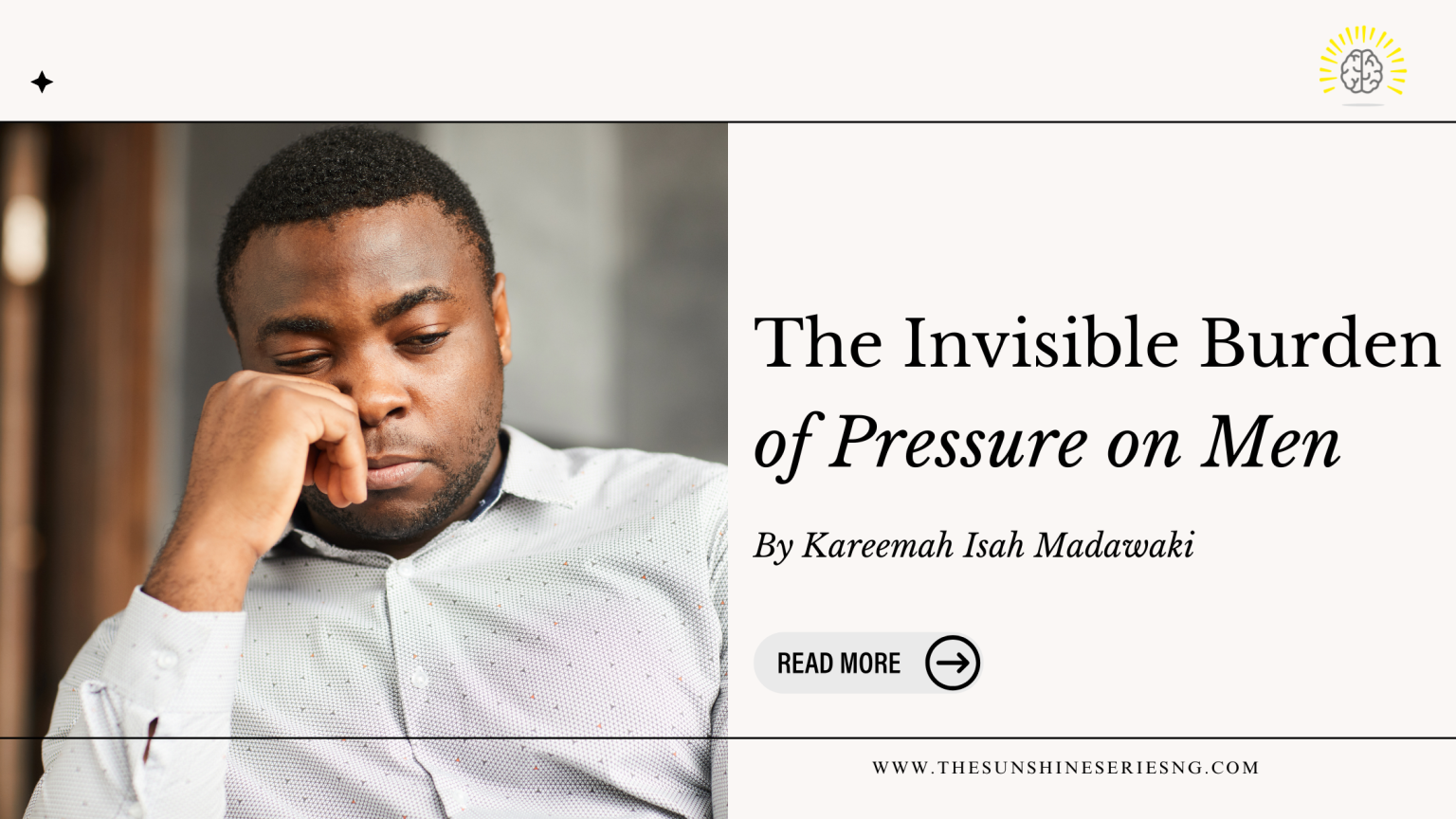Let’s be real: being a man in Nigeria today is no small task. Society expects you to be the provider, the protector, the fixer, and basically a superhero with no room to fall apart or vent. But here’s the hard question: Who takes care of the man who’s supposed to take care of everyone else?
In therapy, I’ve sat across from many Nigerian men who look fine on the outside—clean haircuts, sharp kaftans or suits, cracking jokes, but inside, they’re overwhelmed, anxious, and silently drowning under the weight of expectations.
The Pressure of Provision
The number one pressure? Money.
In Nigeria’s current economy, even buying tomatoes can raise your blood pressure. Now imagine being a man expected to pay rent, cover school fees, “send something” to family every weekend, fuel the car, buy data, contribute to weddings, and still smile through it all. It’s exhausting.
Stories That Reflect the Strain
Take Tunde, for example. He didn’t come to therapy because he “believed in all that mental health stuff,” but because his wife begged him. He hadn’t been sleeping well, snapped at his kids, and worried constantly about the next bill. Beneath the anger was shame—he felt like a failure for not meeting the “standard.”
Then there’s Bello, a young man from Kaduna. He worked as a civil servant and side-hustled as a Bolt driver. Recently married, he juggled rent, supporting his siblings, and preparing for his wife’s delivery. The endless demands completely burnt him out.
Yet he told me, “Wallahi, I cannot show weakness. My father never complained. If I speak, they’ll think I’m not man enough.”
Bello began feeling chest pain and struggled to focus at work. He thought it was “spiritual.” Eventually, after a few sessions, he allowed himself to breathe, admitted he was tired, and cried for the first time in years.
Why Men Don’t Speak Up
These stories aren’t rare. Many Nigerian men are in the same boat. The economy is harsh, but the expectations haven’t shifted. Society still measures a man’s worth by how much he earns or provides.
Unfortunately, there’s little space to say, “I’m struggling,” without being labeled weak or lazy. As a result, men bottle up their pain, often turning to alcohol, gambling, or silence as coping mechanisms. Over time, this pressure can trigger serious mental health issues like chronic stress, depression, high blood pressure, and even suicidal thoughts.
How We Can Change the Narrative
So, what can we do?
First, let’s normalize conversations about men’s struggles. It’s okay not to be okay. The more we talk, the less shame we carry.
Second, men need safe spaces, whether barbershops, mosques, gyms, or even WhatsApp groups, where they can vent, share, and support each other without judgment.
Third, as a society, we must redefine masculinity. Being a man isn’t only about providing financially. It’s also about being emotionally present, mentally healthy, and kind to yourself. After all, you cannot pour from an empty cup.
Finally, therapy works. It’s not for “mad people” or “oyinbo culture.” It’s simply talking to someone trained to help you sort through the noise in your head and heart.
Dear Nigerian man, you are not alone. The weight is real, but you don’t have to carry it in silence. Book a therapy session today. Call 09095250384 or visit thesunshineseriesng.com and take the first step toward caring for your mental health.
References
BBC Africa Eye. (2022). Suicide and depression among Nigerian men: The unspoken epidemic. https://www.bbc.com/africa
Mental Health Leadership & Advocacy Programme (MHLAP). (2023). Men’s mental health: Challenges and policy gaps in Nigeria. http://www.mhlap.org
National Bureau of Statistics. (2023). Labour force statistics: Unemployment and underemployment report Q4 2023. https://nigerianstat.gov.ng
UNICEF Nigeria. (2021). Mental health and psychosocial wellbeing of adolescents and young adults in Nigeria. https://www.unicef.org/nigeria
World Bank. (2024). Nigeria economic outlook – Inflation, youth unemployment, and mental health challenges. https://www.worldbank.org/en/country/nigeria

